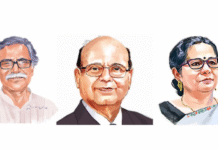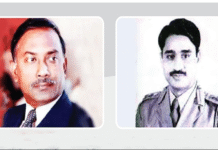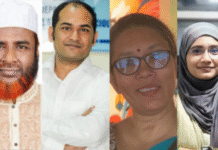
The coronavirus has shown us that we need a new kind of politics
It is a difficult time to be an international student in the United States, the epicentre of the coronavirus pandemic.
You are worried about your funding, worried about your studies, worried about when international flights will resume so you can return home and, most importantly, you are worried about your family and friends back home.
I was listing all my worries the other day and giving scores to understand which of them are worse. To my surprise, Bangladesh’s coronavirus situation worries me more than anything else.
This is partly because my parents are elderly, and I am their only son and it is unfortunate for parents to not have their children beside them in a crisis like this.
Bangladesh’s situation worries me more because I know if Bangladesh faces something similar to the magnitude of Italy or the US, our health system and many other services will simply collapse.
And I am not the only one who is worried about Bangladesh — I spoke to several Bangladeshi students in the US over the phone and Facebook messenger and found that most of them spend sleepless nights during this lockdown mainly because of their concerns about their families.
Most of the international students I spoke to told me that they think Bangladeshi politicians are least concerned about the people and their wellbeing. And this is not untrue.
We have seen from the beginning of the crisis how reluctant our politicians were when it came to handling the crisis. Despite having a high risk, the government has failed to take adequate measures from the very beginning.
We have found one senior minister saying that the ruling party is stronger than the coronavirus. A senior minister also reportedly said coronavirus is like normal cold and fever and is nothing serious.
Another minister also came up with a theory stating that, as Prime Minister Sheikh Hasina is a pious person and starts her day with prayer, coronavirus will never affect Bangladesh.
These comments tell us how serious our policymakers were about this pandemic which is considered the single worst crisis since WWII.
We have seen the result of this reluctance. People often complain on social media that they are not getting treatment even if they have the common cold.
A high number of doctors and law enforcement officials were infected with the virus. We have been the worst country at handling the coronavirus in all of South Asia and are yet to know where and when the crisis will end.
We have also seen local government representatives being involved in misappropriation of relief goods. Relief-seeking people brought out a procession in some parts of the country. The Washington Post also reported on this irregularity.
While the government has failed to handle the crisis, the opposition has also failed to regain people’s trust. Other than statements and some proposals, the people have not found the opposition parties on their side.
Rather, the opposition activists gathered in large numbers when their Chairperson Khaleda Zia was released from prison despite the risk of the spread of coronavirus. Even an Islamist political party conducted a large funeral when one of their senior leaders passed away.
We have not seen any constructive activities from the opposition parties. It seems to me that they are praying for the government to fail to handle the crisis. They are least concerned about the people and their health.
One thing that the crisis tells us is: Our politics is in crisis and we need new politics.
We need politics which will put people’s wellbeing first in their priority list than anything else; a government body that will not be busy with how they can defeat their opponents and take advantage of a crisis while thousands of people are suffering.
We need politics which will not ignore a global pandemic and put the country at risk. We need a politics that will be of the people, for the people, and by the people.
Mushfique Wadud is a journalist currently pursuing his PhD in Media studies.









